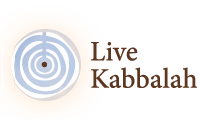Parashat Ekev begins with the words “And it came to pass because you heed these ordinances, and keep, and perform them, that the Lord your God shall keep the covenant and the mercy which He swore unto your fathers”. The Zohar explains the words “And it came to pass because you heed…” as follows: “It is a mitsva (precept) to bless the Lord for everything that we eat, drink, enjoy and do in this world; not blessing is deemed as robbing from the Lord”.
The Torah reminds us here of the new phenomenon that took place at Mount Sinai, as the prohibition to steal was already pre-existing. At Mount Sinai a new consciousness emerged, revealing that with everything we want we are actually desirous of two things: the first is the object itself in its material form. The other is what we actually want and seek but cannot identify with our five senses; it is The Divine Light and bliss inherent in the things around us (food, clothing, objects, etc.), and whose spiritual energy cannot be stolen.
The word “ekev” (because of, due to, following) teaches us that the universe operates on the principle of cause and effect, and that “Man does not live by bread alone, but by everything that emanates out of the mouth of the Lord” (Deuteronomy 8:3), i.e., our existence requires something beyond bread, beyond the materialistic level. We need meaning and inner strength.
“And keep, and perform them…”—the question of why the double verb is clarified, in that “perform” is an action, whereas “keep” denotes conscious awareness: added importance is given to intent and awareness over mere rote performance of the mitsvot (precepts).
The Kabbalists regard a human being as an enchanted being, who, apart from other creatures of the earth, has been endowed with the ability to live simultaneously in two worlds – the spiritual-upper, and the material-lower – and to grasp the essence of both. Every action involves both keeping and performing, awareness and action, the purpose of which is to implement our role in the world and breathe life force into everything we do, to connect and imbue soul and Light from the upper worlds into what we do in the lower worlds, and thereby infuse abundance and blessing into every aspect of our lives.
The Bible tells us to recite blessings over everything we enjoy as it is written: “And you shall eat and be satisfied, and bless the LORD your God for the good land which He had given you” (Deuteronomy 8:10). This is not for the purpose of thanking God, it is, in effect, the way to draw light and abundance from the upper worlds, and by not blessing it is as if we have stolen. A thief can steal material possessions but not the spiritual essence of an object or of the money stolen; the thief is left with the empty shell of a material object, devoid of spirit or divine Light. And so, without a blessing and spiritual mindfulness, any action without heartfelt intent is like a body without a soul, matter without spirit. This applies to precepts in the Torah as well as commonplace daily tasks.
The basic wisdom of Parashat Ekev, is that awareness and presence are important in all that we do. Thoughts and feelings of gratitude and appreciation, joy and love will turn any ordinary material object into a blessed vessel. This applies to the objects surrounding us, in our homes, in business and our livelihood, and is what will bring us an authentic and full life.
To listen to the weekly Zohar Study click here
For additional study on Ekev and other portions enter Live Kabbalah University
